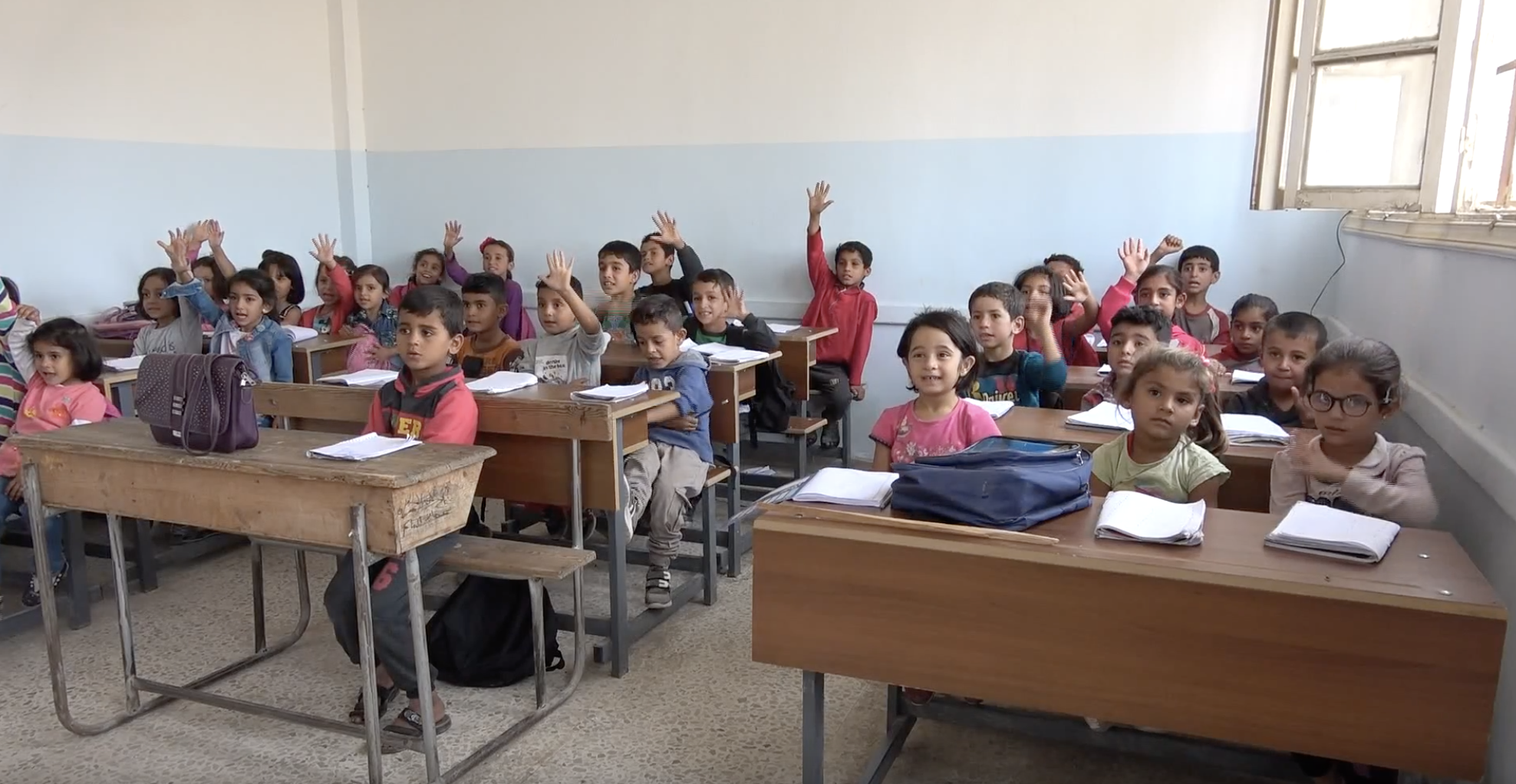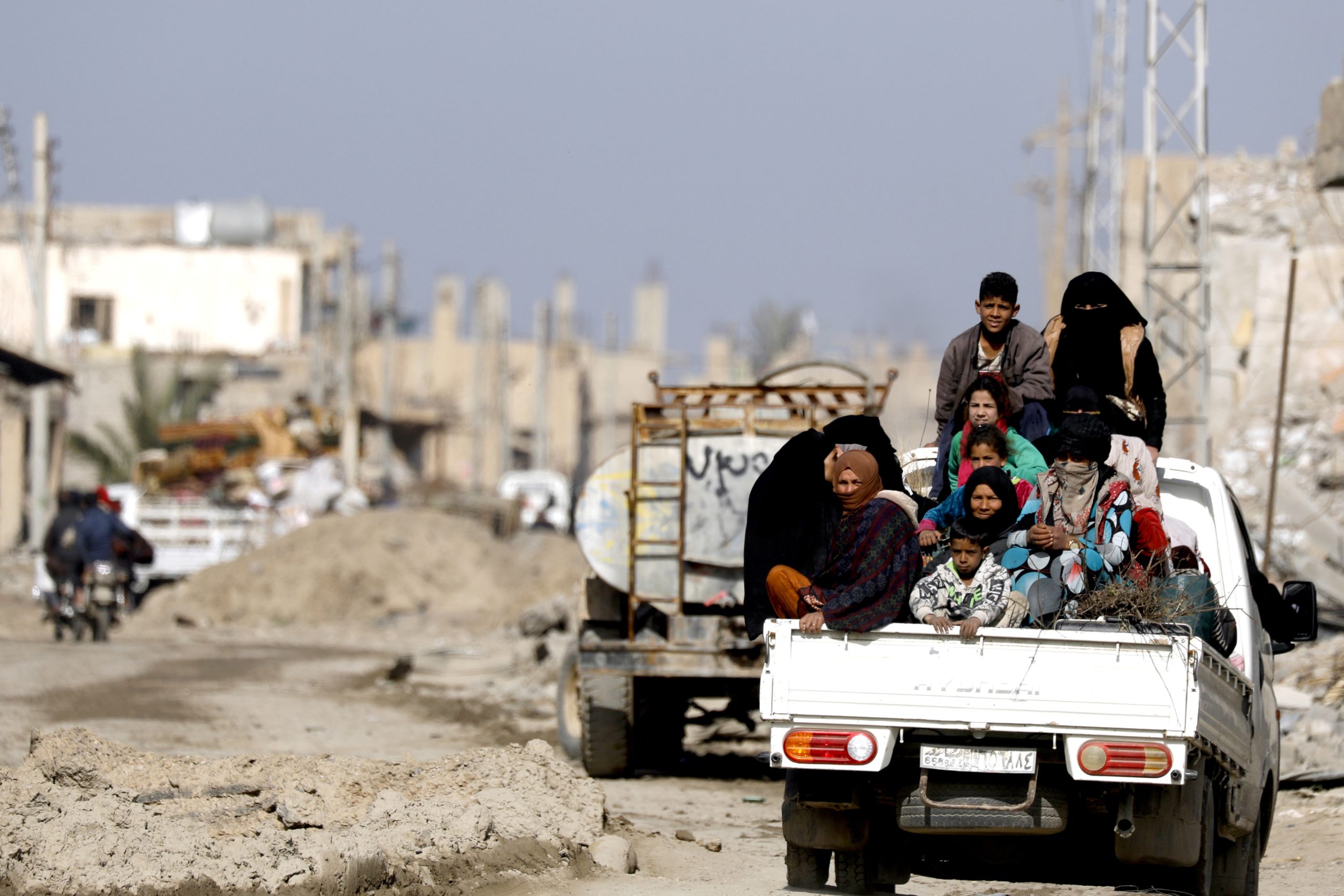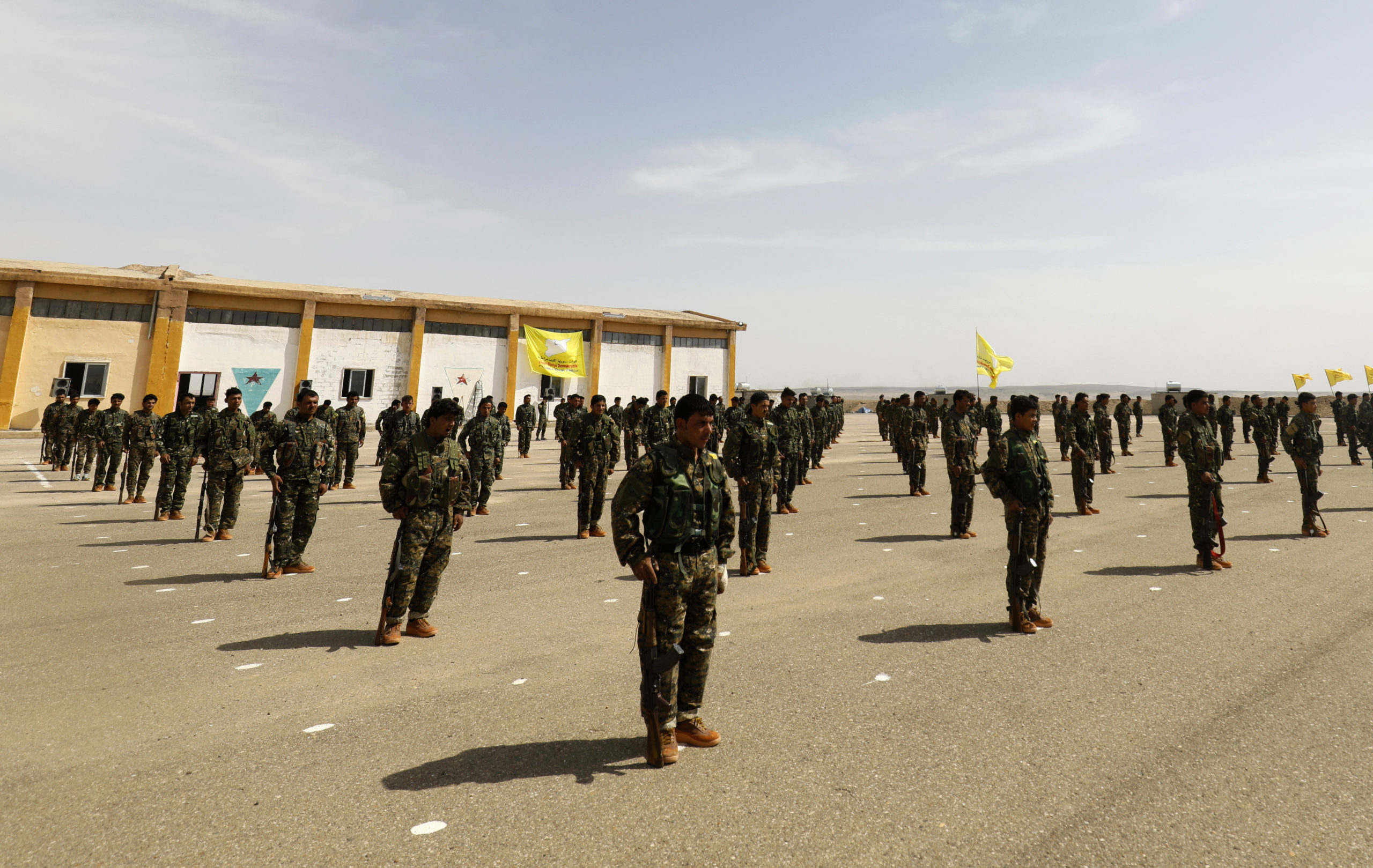One year ago, on 23 March 2019, the town of Baghouz was liberated from Daesh, marking the end of their physical territory after six weeks of intense fighting.
At the height of its expansion in late 2015, Daesh controlled more than 100,000 square kilometres of territory in Syria and Iraq. As the Coalition, along with its local partners fought back, Daesh lost Mosul in July 2017 and Raqqa in October. By early 2019, Daesh only held a tiny pocket of territory centred on Baghouz, near the Iraqi border in Syria’s eastern Deir Ezzour Governorate. A concerted final push drove the terrorists from the town, meaning that Daesh no longer held territory.
A Return to Normalcy
Following the loss of Daesh’s territory, the residents of Baghouz, and in liberated areas across both Syria and Iraq, sought to rebuild their lives. Infrastructure across the region was badly damaged in the fight against Daesh, civil governance had ceased to exist and many people’s livelihoods had been destroyed. Local people were faced with the huge challenge of rebuilding their communities from the ground up.
Against all odds, over the past year, a semblance of normalcy has returned to many areas formerly controlled by Daesh. Local administrative councils, with Coalition support, are providing communities with help to stimulate local economies, rebuilding critical infrastructure such as power plants and roads, and rehabilitating hospitals and schools.
Tabqah Hospital in Raqqa Governorate, one of many health facilities refurbished since Daesh’s demise, today provides life-saving emergency and maternal care to more than 500,000 people in the area. Elsewhere in Raqqa, local authorities have rehabilitated more than 75 schools and created 11 children’s centres, all of which offer fresh hope and opportunity to a generation scarred by conflict.

As the security situation has improved, tens of thousands of people have been returning to towns and villages. Since mid-2019, the SDF has aided the return of thousands of individuals who took shelter in camps and among host communities in north-east Syria to their homes. Day by day, more civilians are leaving Al-Houl IDP camp, where at least 90% of residents are women and children.
Despite concerns over the reintegration of those who remained in Daesh-controlled territory until the end, by choice or by force, many local communities have gladly accepted the return of their neighbours. In some areas where reconstruction needs are greatest, strong community networks have stepped up to facilitate returning IDPs’ reintegration. Deals have been brokered between the SDF and the local tribes from Raqqa and Deir Ezzour. Whereby local community leaders have agreed to sponsor and take responsibility for the returnees. The first group of over 700 IDPs returned to Raqqa and Tapqa on 1 June 2019.

In total, Coalition partners have pledged more than $20 billion to support Iraq and northeast Syria, shoring up hard-won military gains, providing aid to liberated areas and delivering programmes that mitigate the drivers of violent extremism.
Addressing the Lingering Security Challenges
As Daesh’s final stronghold in Baghouz crumbled, a small number of the group’s members escaped to continue their brutal campaign of terror locally, as well as abroad.
Hardened fighters dispersed into the vast deserts and mountains of Iraq and Syria, from where they continue to plan and conduct a deadly insurgency against local security forces and civilian targets alike. In eastern Syria alone, there have been hundreds of IED attacks and targeted assassinations of SDF personnel and civilians, most significantly in early-recovery areas of Deir Ezzour Governorate.
However, the scale and frequency of such attacks are a far cry from Daesh’s former capabilities. Counter-Daesh operations by the Coalition and local partners have continued unabated, denying the terrorists the space and resources required to effectively regroup.
The Coalition has also stepped up efforts to capture or neutralise senior Daesh members – most notably their leader, Abu Bakr Al-Baghdadi, who was killed in north-western Syria in October 2019. Progress has also been made in disrupting the activities of remaining foreign terrorist fighters (FTFs), of whom made their way to join Daesh; close collaboration between states has seen dozens of FTFs arrested as they attempted to go underground or return to their countries of origin.
The Coalition also remains committed to training local and national security actors with the skills they need to ensure a lasting defeat of Daesh. Across Iraq and Syria, more than 210,000 military and police personnel have received specialized training in engineering, medical, counter-IED, and urban operations.

Moving forward
One year on from the fall of Baghouz, with the Coalition’s support, the people of Syria and Iraq have begun what is certain to be a long process of rebuilding their society on their own terms, free from Daesh’s dangerous ideology. While the challenge posed by Daesh remnants remains substantial, the Coalition and its local partners are united in their commitment to securing their enduring defeat and building a brighter future.
In Iraq, the Coalition is adjusting its position for two reasons: long-planned adjustments to the force to reflect success in the campaign against Daesh; and, short-term moves to protect the force during the Coronavirus pandemic.
This means that the Coalition is repositioning troops from a few smaller bases. These bases remain under Iraqi control and we will continue our advising partnership for the permanent defeat of Daesh from other Iraqi military bases, providing much-needed specialist support.
To prevent potential spread of COVID-19, the ISF have suspended all training. As a result, the Coalition will temporarily return some of its training-focused forces to their own countries in the coming days and weeks. The Coalition remains committed to the lasting defeat of Daesh through our partnership with the ISF, and as the situation permits, we will resume our support to Iraqi training.

